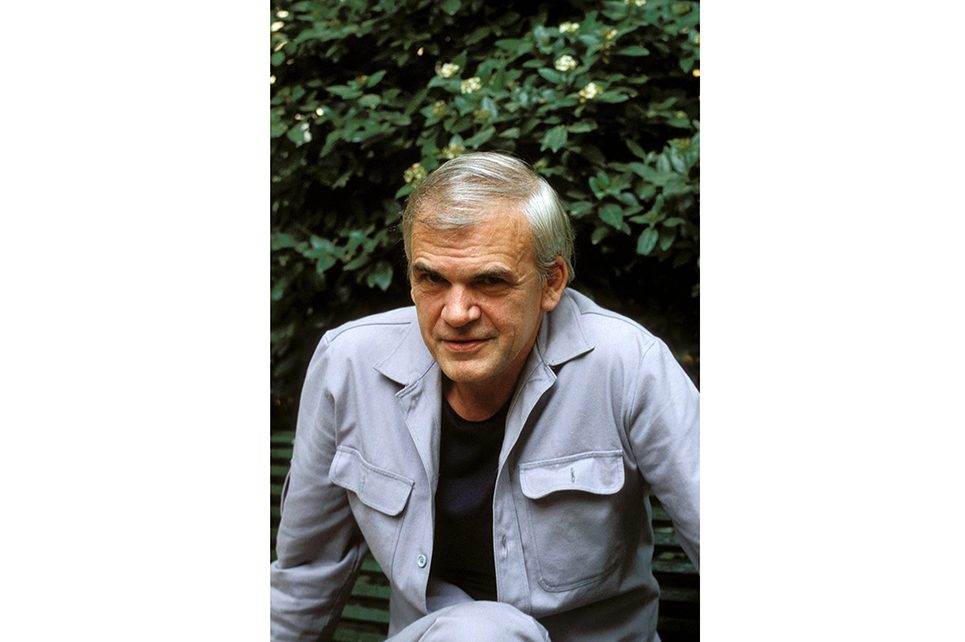If you’re looking for a towering intellect to dispense guidance and illumination on current events, particularly one from Central Europe, the hearth of gravitas, piano sonatas, polyglotism, the reading of Hegel etc, Milan Kundera, in A Kidnapped West, will be a bit of a disappointment.
This isn’t Kundera’s fault. The volume contains a short speech from 1967 and an essay from 1983. It’s a pleasure to see a publisher giving oxygen to learned discourse, and while both texts are as urbane and erudite as you would expect, we have moved on a great deal. A Kidnapped West needs to be filed under intellectual history.
Not that everything has changed, how-ever. In his 1967 address to the Czech Writers’ Congress, Kundera laments the “provincialism” of Czech teachers who know little about European literature (and this is 1960s Czechoslovakia, where, like in Hungary and Poland, reading a good book was just about the only form of non-sexual entertainment available). For Kundera, the vandal isn’t the arsonist. The threat to culture comes from another type: “The vandal, rather, is that prideful narrow mind, pleased with itself and ever ready to claim its rights.” Kundera’s definition neatly covers both Molière’s faux dévots and the keyboard warriors of social media.
The bulk of the book is the eponymous essay “A Kidnapped West.” “Today, all of Central Europe has been subjugated by Russia, with the exception of little Austria.” In 1983, Kundera was in exile in Paris, and his essay can be summed up as: we’re so cultured, we’re so westernized, why don’t you care we’ve been kidnapped by Russians who’ve never seen a flush toilet? Unfortunately, there wasn’t much concern about the “other Europe,” the vassal states of the Warsaw Pact, in the cultural spheres — with the notable exceptions of Roger Scruton and Norman Stone. Nor was there much talk about Kundera at the time, because he hadn’t yet published The Unbearable Lightness of Being.
The essay expresses the sense of abandonment felt by the Czechs, Slovaks, Poles and Hungarians (Kundera describes how the less worldly Hungarian revolutionaries were convinced the West would come to their aid in 1956). These countries have always felt they were hanging on to Europe by their fingertips, as they were trampled by various marauding hordes from the East, and that they were often judged as backward borderlands — although Czechs at the time would sardonically point out that Prague was geographically further west than Vienna.
Perhaps Kundera’s social life was in a slump at the time of writing, because he patently wanted to make friends. It’s true that it was an era when — as far as was possible with huge egos — the poets and philosophers of the region were united in their campaign against the Soviet overlord. Kundera has much praise for “the Jews” and fulsome respect for the Hungarian writers who, he maintains, played a leading role in the 1956 revolution.
In fact Hungarian writers only got mouthy after Khrushchev’s speech denouncing Stalin, and as far as I know there isn’t a record of any of them picking up a gun. Tibor Déry, whom Kundera singles out, was initially keen on the meal ticket communism offered (like Kundera, and so many of the well-known writers from the Soviet bloc), until he felt communism wasn’t giving him all the rock ’n’ roll he wanted out of life. In the 1967 speech, Kundera states that communism is superior to fascism. My guess is that by 1983 he might have changed his mind.
He also reflects on the “small nation” problem. Is it worth writing in Czech, when writing in German would be easier and more profitable? Look at that Kafka guy. The outlook of “A Kidnapped West” is inevitably different to the other half. Czechs and Hungarians have to worry about their language and culture disappearing in a way that the English, French and Germans don’t.
Reading the essay now, the most interesting paragraph is the last, which is curiously vatic. Having, predictably, fulminated at length against the Russians and their ruinous presence, Kundera writes: “The real tragedy for Central Europe, then, is not Russia, but Europe.”
Like Solzhenitsyn, Kundera wasn’t bowled over by what he found in the West. Everyone was watching television instead of mulling over Descartes, or squabbling over a review of a slim volume of poetry. As communism collapsed in Hungary, I did mention to acquaintances that not everything was perfect in the West. How they rolled around laughing at me.
I doubt whether Kundera could have foreseen the schism that has opened up between Brussels on the one hand and Poland and Hungary on the other. But in Warsaw and Budapest, they are wondering if incarcerating male rapists in women’s prisons and adults self-identifying as cats are actually the pinnacle of civilization and what the West really stands for.
Something that wouldn’t have surprised Kundera is Russia’s barbarous war in Ukraine. Merely Russian business as usual: kill, deport, lie, repeat — though not necessarily in that order. The battlefields of Ukraine are likely to be the final chapter of the Soviet story and Russian power. When I was working for the Daily Telegraph in Budapest in 1989, as the Soviets packed their bags and the puppet regimes toppled, my editor half-jokingly said to me: “You’ll be doing the siege of Kiev next.” It’s taken a while, but here we are.
If Putin is beaten, or simply fails to succeed in Ukraine, it’s the end of Russia as an interferer for generations. From the go, my Russian friends — mostly writers — viewed Putin as a KGB thug and were puzzled by the generosity of the West towards him. But what bewildered and infuriated them most was that the majority of their fellow citizens were unconcerned about Putin, or actually liked him.
After reading Dostoevsky’s prison journals recently I can’t think of another writer who has captured a nation’s character so well. Many Russians seem to have this genetic predisposition to alcoholism and serfdom. “You want me to freeze to death in a trench in Ukraine so you can have a bigger super yacht? Cheers, guv’nor!”
Even in what is now a mature dictatorship, word must be getting through to Russians that Ukraine is a catastrophe for them too. Last year I made a bet with someone at the New York Times that Putin would be gone by this May. I lost that bet, but I don’t think Putin will hang on much longer. A lot of people are falling out of top-floor windows in Russia.
This article was originally published in The Spectator’s UK magazine. Subscribe to the World edition here.

























